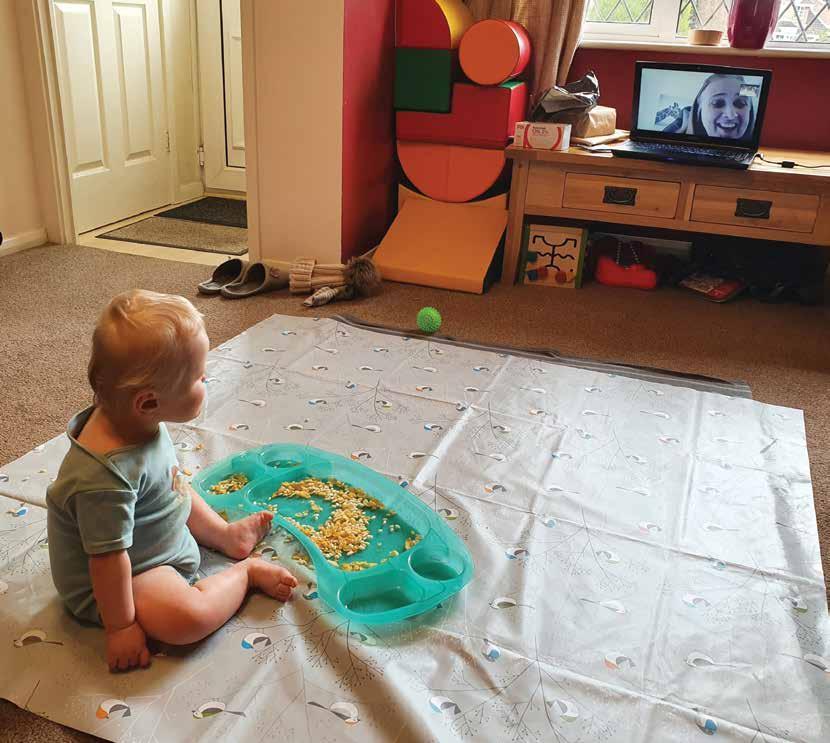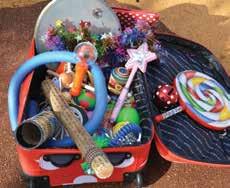
2 minute read
Child’s Play
CHILD’S
PLAY Playworker Lisa gives us an insight into her varied and rewarding role
Advertisement
Lisa (on screen) carries out a virtual play session with Alexander

Like everyone, my role has been very different over the past year. Stacey (my fellow Playworker) and I have been providing virtual play support. Normally we would be travelling across Dorset or Wiltshire delivering play within the family home, in the community or at the hospice.
Play is at the very centre of a child’s development. It allows them to practice cognitive, emotional and motor abilities. But when a child has a disability or long term illness the development process of play is greatly interrupted.
Play offers fun, laughter, anticipation, repetition, predictability and of course, the wonderful feeling of being in control and of making something happen. We all know that once you succeed at something, you want to repeat it to get that lovely glowing feeling back again and again!
All our one-to-one play sessions are individually pitched. We would never go to a session thinking “this is what I need for a child with cerebral palsy and epilepsy.” It would be “I am going to visit Harry, who is functioning at the age of three, loves Thomas the Tank Engine, and just happens to have …”
We provide specific support for behaviour management, sensory exploration, intensive interaction, support for medical interventions and food play. Play is so important for our families as their lives can be taken over by their child’s medical needs.
We focus on what each child can do and not what they can’t, making sure we give them time to process and respond. This can mean waiting for a period of 30/45 seconds for a child to respond in a variety of ways, such as making a vocalisation or moving a finger or a foot. We aim to give them control of their play as there is so much else happening in their lives that they can’t control.
All play support has been provided virtually during COVID - story times, activity sessions that explore all of the senses, music therapy and gaming. We have just recently started doing a few face-to-face sessions at the hospice again.
Because we aim to pitch play to every child’s individual needs, abilities and preferences we take time to plan and prepare for all sessions. We need to always have a plan B and C to hand, especially at the moment whilst we are supporting the children and the team through a screen. It is vital to offer the child choices, and our aim is to ensure those choices always bring about a feeling of joy. Every child has the right to play!







